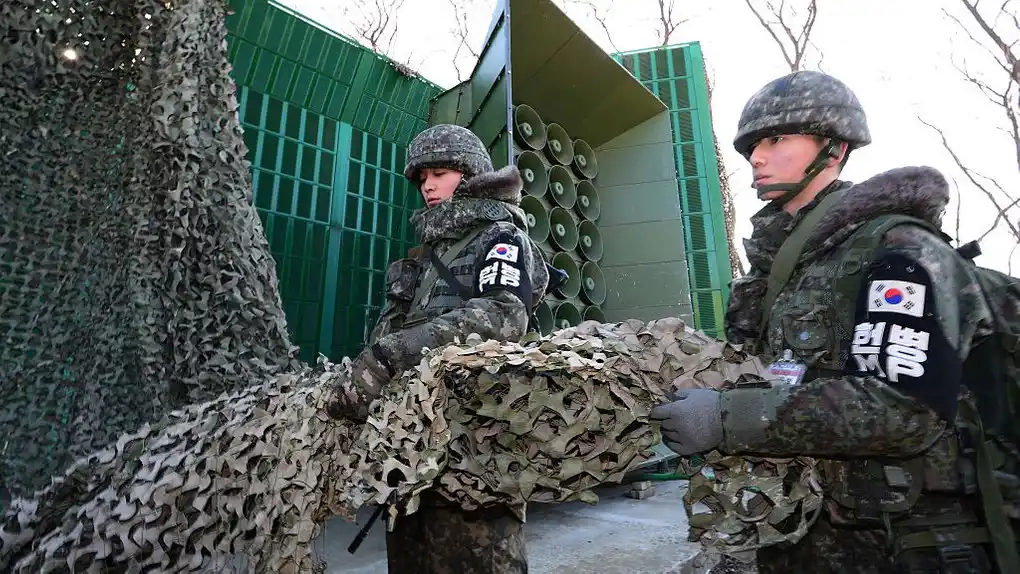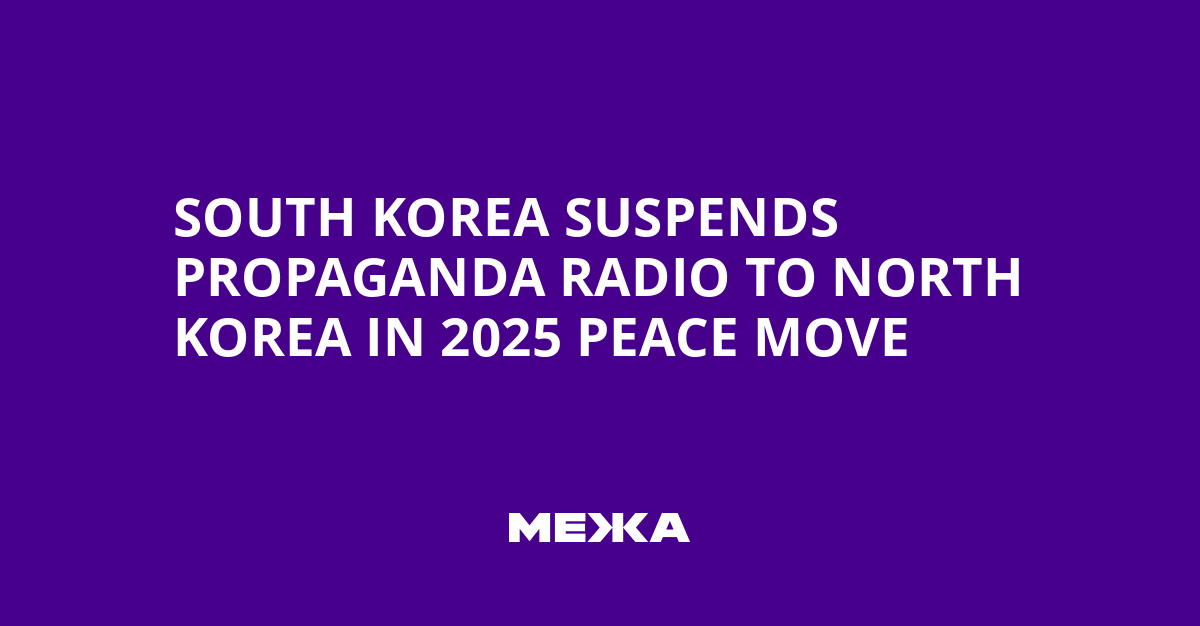
South Korean soldiers remove protective coverings from loudspeakers at a military base near the border between South and North Korea on January 8, 2016, in Yeoncheon, South Korea. Getty Images/Korea Pool-Donga
On Sunday, September 1, 2025, the Ministry of National Defense of the Republic of Korea officially announced the suspension of broadcasting of a propaganda radio program aimed at North Korea. This decision was part of a series of conciliatory steps by Seoul’s government following President Lee Jae-myeon’s pledge to resume inter-Korean dialogue and dialogue with Pyongyang.
“The Ministry of National Defense halted the broadcast of “Voice of Freedom” as part of efforts to ease military tensions between the Koreas”
– Ministry of National Defense of the Republic of Korea
The transmitters had previously played K-pop songs and fresh news bulletins. It was also noted that earlier in the program there were reports about possible North Korean troop involvement in conflicts beyond the Korean peninsula, including mentions of sending troops to Russia to participate in the war against Ukraine.
This marked the first suspension of the radio program in nearly 15 years: in May 2010 the program was resumed after North Korea attacked the South Korean naval vessel Cheonan.
It is also worth noting that in early summer, South Korea eased rules on contact with DPRK residents. On July 31, citizens were allowed more open contacts with northern counterparts, provided they gave prior notice to the Ministry of Unification. And on August 4, the dismantling of loudspeakers along the border with North Korea began as a step to reduce inter-Korean tensions without compromising defensive readiness.
Experts say that such developments could create a more favorable groundwork for future negotiations and practical steps toward dialogue between Seoul and Pyongyang, despite existing differences and the traditional caution of both sides.
